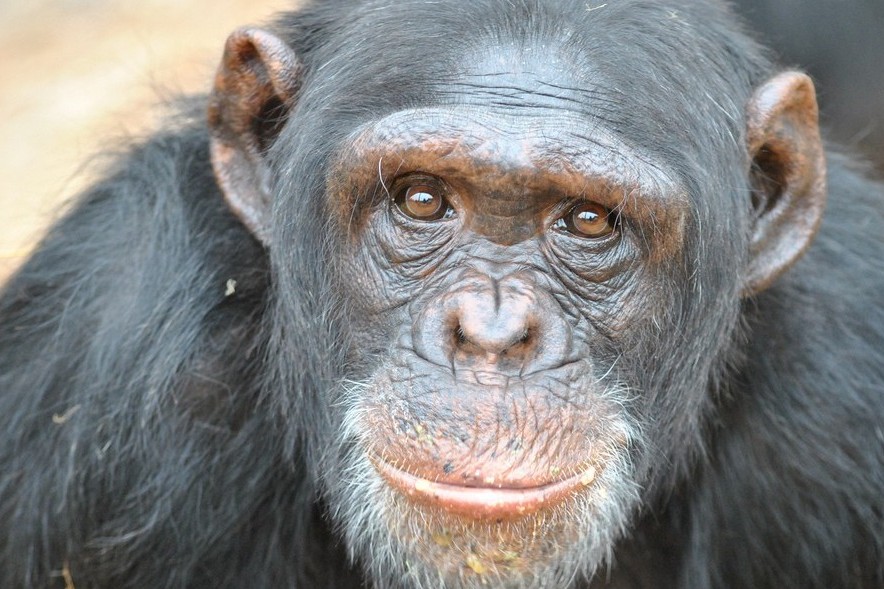Dr Brandon Wheeler is one of a team of scientists who reviewed research claims that chimpanzees can learn each others’ language.
Dr Wheeler, a lecturer in Biological Anthropology in the School of Anthropology and Conservation (SAC) and co-author of the new analysis, concluded the research was flawed in fundamental ways. This was because it:
- misread the causes behind changes in vocalization
- didn’t recognize that most initial vocalizations of the two groups were similar to begin with
- didn’t substantially change over the studied period
The research in question, published in the journal Current Biology in February, centred on the examination of two sets of chimpanzees in Edinburgh Zoo. One group had been captive for several years in the facility and one had recently arrived from the Netherlands. Over a three-year period, the researchers claimed that the latter set had altered their sounds to those of the former set when communicating about apples, resulting in what they saw as a newly shared vocalization.
The original study team posited that the findings provided the first evidence for vocal learning in a referential call in non-humans. This was offered as evidence that chimpanzees can learn different calls for the same object, which was widely interpreted as an important finding for the study of language evolution. The report gained worldwide media attention.
However, the review of the Current Biology study by Dr Wheeler and colleagues at the German Primate Center in Göttingen and New York University suggests these conclusions are misplaced. They found that closer inspection of the data reveals that both groups largely overlapped in the range of calls they were originally giving in response to apples, with only a few calls of the Dutch chimpanzees outside the range of the calls given by the Edinburgh chimpanzees.
They found there was some statistically significant but biologically weak change in the calls over time, following the move of the Dutch chimpanzees to Edinburgh, but such social modulation is a well-known phenomenon in animal vocalizations that is found in most primate calls. – and even in the calls of goats.
The review by Dr Wheeler and colleagues has received widespread coverage in media outlets including the BBC , Reuters , Daily Mail, Yahoo News , Philly.com and The Straits Times .
Image: Chimp Eden Sanctuary – Mimi – picture by Afrika Force. CC BY
Report: Sandy Fleming : 3 November 2015

